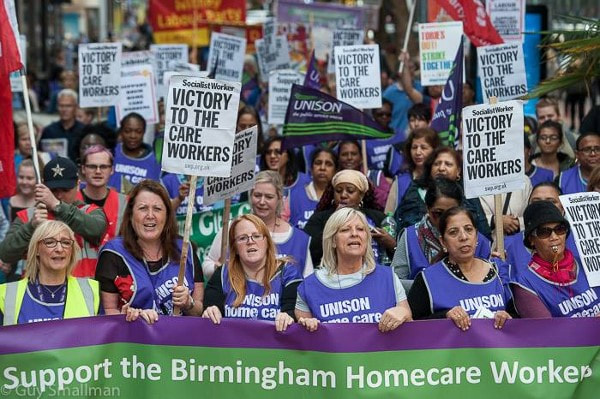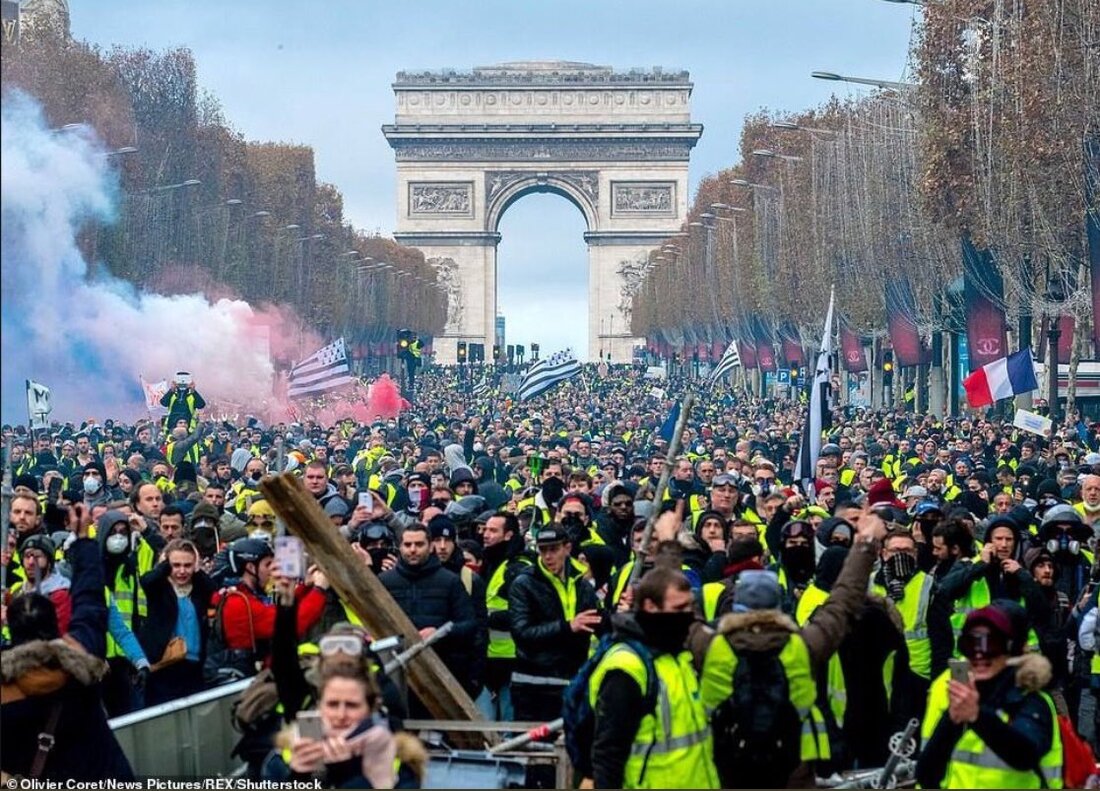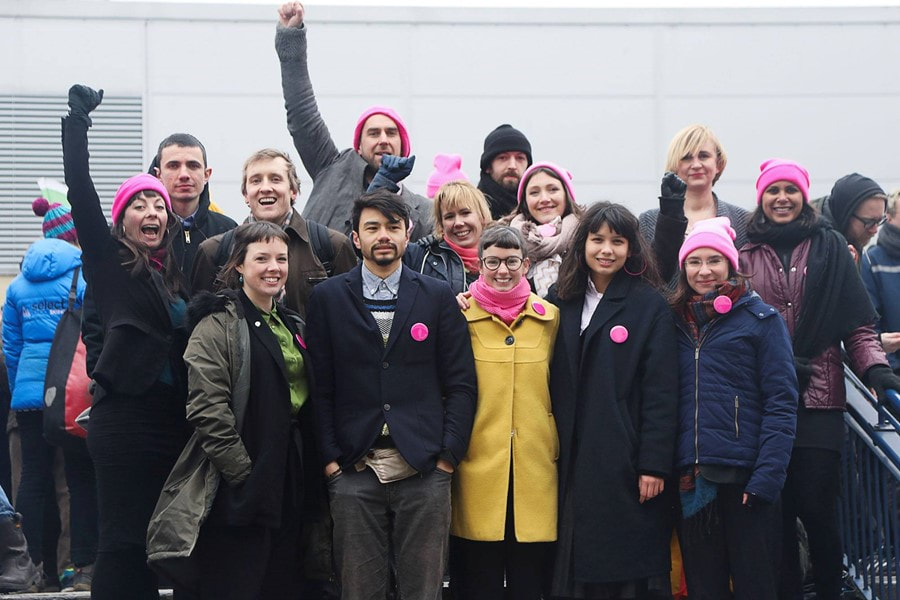|
The last few months have seen several strikes and industrial actions across the Birmingham area, including a Work to Rule by Birmingham City Council bin workers, ongoing strikes by home care workers in dispute again with the City Council and an autonomous strike by Deliveroo riders.
Bin Workers with Unite the Union originally went on strike in June 2017, winning popular support across the city, while GMB workers remained at work over the same period. After the three months the dispute was resolved. However, in the months since, it has been revealed that GMB workers were given a payment of around £4000 each over this period, purportedly as compensation for an error in protocol during negotiations between the council and GMB. Unite members claim that this was a payment made in discrimination against the striking workers. The workers voted almost unanimously in favour of action short of a strike, opting for a Work to Rule (where workers refuse to work overtime or perform any tasks which are not specified in the contract of employment). The Work to Rule lasted around 3 months, before the dispute was resolved at the end of March during a meeting with Birmingham City Council. Things started to go wrong when workers in GMB and Unite did not manage to stay united in their response to the job losses which spawned the strike back in 2017. In periods of high union struggle, workers would strike together across industries and workplaces (a tactic called solidarity action or 'sympathy striking'), a practice now outlawed due to its power in the fight against the ruling class. Workers must stick together in their battles against bosses, landlords and governments, because solidarity is our greatest strength, while division is the favoured strategy of the ruling class. Care workers are continuing strike action started 18 months ago in response to proposed changes to working patterns which could lead to wage cuts of up to £4100 and unworkable split-shifts which would effectively force many out of the job. The dispute has stretched to 70 days of strike action so far, with workers changing tactics since the new year, flyering houses in Birmingham wards to raise awareness of the strikes and gain public support for a fair resolution to their dispute. Care workers were blocked in their collective delivery of a card addressed to 'Scrooges' at the Council House last Christmas, admirably attempting to force entry to the council building in defiance of a last minute lockout ordered by council members. RAG whole-heartedly applaud care workers for their bravery in confronting council security, who slammed the doors of the council building in their face as they sought to highlight the administrators' attacks on their livelihoods and those of their families. The same Labour councillors shamefully awarded themselves pay raises of over £600 a few months later, in April of this year. (You can donate to the Care Workers Strike Support Fund by clicking here). Deliveroo moped and motorcycle drivers also took strike action this year, in response to imposed changes away from flexible work towards a system of booked shifts. With competition for shifts high, work now needs to be booked a week in advance, a change that has effectively left many riders out of work. Workers took action autonomously, being unaligned to any formal trade union. This kind of self-organisation is brave and admirable, and we hope that we will have the opportunity to support them, alongside other cycle couriers, in future action against super-exploiters Deliveroo and Uber-Eats. Trade Union struggle is inherently limited as a form of revolutionary struggle, constraining its demands to a better form of Capitalism for unionised workers. That said, RAG support all Workers in their fight for better pay and conditions, only hoping that union struggles become more generalised, breaking free of the legal and bureaucratic limitations of union activity. It is vital that the working-class gain confidence through battles with their exploiters, to understand for themselves the contradictions of the Capitalist system of production and the opposing interests of Workers and the ruling class. If you are having trouble in your workplace, or want to understand how Workers can fight to achieve a better society, get in touch online or come and say hello at one of our open events.
0 Comments
In 1840 the anarchist Pierre Joseph Proudhon, wrote a book called ‘What is Property?’ in which he said ‘Property is theft’, a phrase that has intrigued and inspired many political thinkers, radicals and activists.
Property takes many forms and types: The unifying form of property is one of the most basic and essential of all human rights; the need for shelter. We all seek a roof over our heads and a safe place to sleep and rest. The unfunny truth is that for the greater part of human evolution, this wasn’t a problem; people lived in familial and communal groups in which support and resources were abundant. Things started to go bad in the early growth of capitalism, when property ownership became a pivotal tool in the exploitation of the new ‘working class’. Only the very wealthy owned property, which greedy new industrialists rack-rented to their workers, but only as long as they were able to work. Once they couldn’t, they were cast off into the gutter like rubbish. It’s shocking and outrageous that the realities of life haven’t changed that much isn’t it? The great postwar dream of the ‘welfare state’ with homes and healthcare for all is just that, a dream, being sucked dry by the wealthy elite. Most younger people can’t afford the deposit on a home, so are forced to rent, lining the pockets of fat-cat landlords. Even for people who can get a mortgage, it’s the bankers that really own the building, not them. Meanwhile, large numbers of buildings big enough to house several families languish empty in our cities as plaything investments of the super rich. I’m angry and appalled by the ever growing numbers of hungry and homeless faces I see on the streets of Birmingham. I think community is more important than property. No one owns the world, it’s a gift we all share. I’m reaching out and working together with like-minded people, we’re fighting back and organising for a better future - You can too. As far back as Kropotkin and Bakunin, Anarchists have known that the potential to build a better society lies in the hands and minds of ordinary people, with little time for prescriptive dogmatism, or self appointed “great men” vying to lead the way.
In “The Conquest of Bread” (which, admittedly, if we anarchists were interested in adopting one sacred manifesto, would surely make the shortlist...), Peter Kropotkin writes of the importance, come revolution time, of ensuring the “theorists ... have no authority, no power.” Rather, he describes how, once freed from the stifling authority of government, landlords and the wage system, the working class are more than capable of organising themselves into communities in which everyone is amply fed, clothed and housed. In fact, he argues that not only is this a real possibility (as demonstrated by reams of farming statistics – some parts of the book are a little dry) but is the natural and even inevitable tendency of free people. And damn if that isn’t refreshing! There’s a contagious optimism to Kropotkin’s belief that, far from being a utopian pipe dream, anarchist communism is the obvious next step in the evolution of human society. In view of this, the book doesn’t dwell much on the mechanics of revolution, except to note most importantly that the first concern should be providing for people’s immediate needs (the titular bread) rather than, say, as in Kropotkin’s scathing example, forming committees to discuss “middle-class ideas.” The main thrust of the book, then, is that all human production is the product of an interconnected web of many people’s labour, and is enough to meet everybody’s needs. The conclusion this leads us to can be summed up in Kropotkin’s own words: “What we proclaim is the right to well-being: well-being for all!”. A call met by Anarchists across the globe to this very day. To investigate Anarchist ideas and books such as The Conquest of Bread, come the Revolutionary Anarchist Group Radical book club, 7pm on the first Tuesday of every month at the Prince of Wales in Moseley. Check out our Facebook to find out about this months book and other upcoming RAG events. With 300,000 people taking to the streets across France in November of last year, the Gilets Jaunes have maintained their struggle in to the spring of 2019. Started as a response to an increase in fuel tax, the yellow-vested protesters have blockaded roads and fuel depots and been subject to considerable police violence.
Beyond calling for lower fuel tariffs, some Yellow Vests have supported increased minimum wage and an end to austerity, while others have opposed taxation (including welfare contributions), with all united under demands for president Macron’s resignation. If that sounds like a real melange of aims – some of which benefit the working class, and some of which don’t – well, yeah it is! Though predominantly workers, the movement also includes bosses and employers, as well as outright fascist and even monarchist (yes, really) groups. So, while on some occasions known fascists have found their fellow Vests turning on them and throwing them out of demonstrations, vest-clad crowds have been proudly waving French flags and in some cases, banners displaying anti-semitic slogans. Such flag worship promotes false unity between the nation's workers and their rulers, whilst dividing them from other exploited workers within the movement and across the globe. A spontaneous mass movement such as this naturally involves all manner of people, and hence a variety of differing politics, ideas and aims. Racists and nationalists undermine radical and progressive elements, sowing division within the movement, while bosses cannibalise and co-opt demonstrations for their own ends, destined to betray the workers in the fullness of time (in this case by pushing protestors to disband once they realised their profits were in jeopardy). This is to be expected because bosses have different interests to those of workers, fighting always for the interests of the Capitalist class. These contradictions, which undermine the potential of the Yellow Vest movement, emerge from the lack of a coherent class consciousness. In common with workers of all nations, the French working class have varying degrees of awareness of their exploitation by the bourgeois state, as the ruling class drown out revolutionary ideologies with those more sympathetic to their own interests. The takeaway for us in the UK, therefore, is clear: we have to be vigilant in our efforts to develop real class-consciousness, in our communities and in our workplaces. When those foundations have been laid, movements like the Yellow Vests could unite behind goals that represent actual progress for the class. For the organised left, of course, there’s another lesson: don’t abandon the movement to the right wing! As the Vests show, far-right elements introduce bigotry and division, undermining the goals of what could be a movement with change-making potential (...it’s worth mentioning that the copycat Yellow Vest actions in the UK have been nothing but a right-wing pantomime). A spontaneous movement, with anti-government and anti-neoliberal leanings, the Yellow Vests movement might provide some example to workers this side of the channel. But to do so, the movement most progress beyond populism and contradiction. Freedom from the manipulation of opportunistic “leaders” is good, but that shouldn’t preclude accountability and the building of democratic decision making structures. As it stands, whatever figureheads emerge have no responsibility to the movement at large, and can be easily co-opted into the existing establishment. Forming assemblies to hammer out common goals and sideline Fascists, and choosing accountable, recallable delegates to represent it to the media and in negotiations would go a long way to democratising the movement, putting power firmly in the hands of the workers, and taking it that much closer to becoming an effective vehicle for class struggle. In March 2017, 15 activists secured themselves around the wheel and wing of a plane to prevent the deportation of 64 people to Nigeria, Ghana and Sierra Leone. For preventing this flight, the ‘Stansted 15’ were convicted of ‘intentional disruption of services at an aerodrome’ on 10th December 2018, a charge drawn from terror legislation carrying a possible life sentence.
Following two months spent contemplating the possibility of life in prison, the 15 were finally handed community service and suspended sentences on February 6th of this year. Meanwhile, of those on the plane, 11 have now been granted legal right to remain, exposing the aggression and injustice of an immigration system lacking in both logic and humanity. By cutting a fence and blockading a stationary Titan Airways plane, the Stansted 15 endangered nobody, but extended a helping hand to people they did not know personally. With the trial now concluded, we see the suggested jailing of these peaceful protesters for what it was: the empty threat of a weak and fearful state. For such peaceful intervention, actual or threatened deprivation of liberty can never be justified. Even suspended sentences will have life-long implications for the activists, now subject to intensive work and travel restrictions. However, this story is about more than these 15 people. Lack of jail time in Wednesday's sentencing is a genuine relief, but the work of punishing the 15 and sowing fear among other activists has already been done. By instructing the jury to disregard evidence of harm prevented, Judge Christopher Morgan chose to make an example, telling other would-be activists that peaceful protest risks the rest of your life. In doing so, he has revealed that like most forms of state oppression, the racist Home Office policy of creating a ‘Hostile Environment’ for migrants is so weak, that simple acts of disobedience rooted in the wider public pose an intolerable threat to its very existence. If large numbers showed up to block every deportation flight, the process would be more expensive and more difficult to secure. Contracted airlines would refuse to take on this risk, forcing the Home Office to either cancel flights, or call upon the military to enforce deportations, no longer able to maintain the pretence of the 'civilised' and 'neutral' state. This is the true potential of mass direct action. The indefinite detention and deportation of undocumented migrants are excused by many British people because migrants are seen as exceptions, allowed here as a special favour, rather than having equal status and right to work. This kind of thinking undermines the struggle for better living conditions for all by ignoring the linked oppression of British and migrant workers, two groups who have more in common with one another than they ever could with bosses, landlords, parliamentarians or aristocrats, British or otherwise. That includes stay at home parents, the elderly and other non-working migrants, who play the same vital roles within the community, with responsibilities to those around them which are too often ignored. By defining people in terms of nationality, we remove their humanity and mask our common interests, keeping us separated by prejudice and unable to organise against those who truly reduce our quality of life. Migrant solidarity is more than anti-racism, but a starting point for an internationalist movement of ordinary people against the ruling class. The false division between British and non-British is perpetuated through racism and scapegoating to keep us separated, but no matter how much we might manage to improve conditions in any one country, we are not truly free until we are all free. Action across and in defiance of borders is necessary for the international working class to unite against capitalism’s enforced inequality. Only when our communities cooperate fully will we throw off the shackles of capitalism once and for all. In this spirit, we cannot allow the establishment to succeed in their heavy-handed attempts to stifle resistance and break our common cause. Instead, we must remember the outcome of the Stansted case, the righteous action of 15 activists and their effect on the lives of 11 people who narrowly avoided potentially life-threatening and inhuman disposal at the hand of the British state. |
The Rag
Archives of print news from The Rag, newspaper of the Revolutionary Anarchist Group, Birmingham ArchivesCategories
All
|






 RSS Feed
RSS Feed
